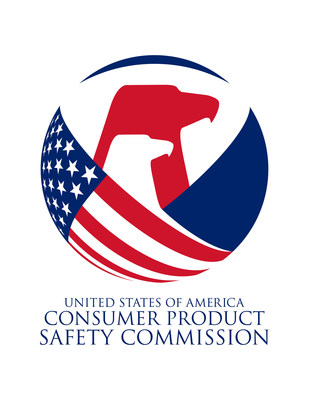National Poison Prevention Week 2018
WASHINGTON, March 16, 2018 /PRNewswire-USNewswire/ -- Poisons can kill. But we also know that unintentional poisonings are preventable. That's why the U.S. Consumer Product Safety Commission urges everyone to have a Plan for Protection from Poisoning, especially if there are little ones or elderly relatives in the home.

Younger children tend to get into everything and often put things they shouldn't into their mouths. Hazardous medicines and household cleaning products can be mistaken for more common products due to colorful packaging or fruity scents. Ingesting these can be a deadly mistake.
In 2016, more than 79,000 children were seen in the ER due to unintended pediatric poisoning. More than 84% of these incidents occurred in the home and most often with these five products: blood pressure medications, acetaminophen, laundry packets, bleach, and sedatives/anti-anxiety medications.
Medicines
Locking up medications and keeping them out of sight, is paramount in preventing pediatric poisonings. Discarding unfinished medicine is also part of a good plan for protection from poisoning. But don't just throw them in the trash where they can be discovered and retrieved. Consider taking unneeded medications to your local police station where many have drug recovery bins or check your local pharmacy to see if they have a disposal kiosk for medications.
Laundry packets
Recently, teens trying to get clicks and likes on their social media pages have put themselves in danger by putting laundry detergent pods in their mouth. No one wants to see an internet joke become a family tragedy. Laundry packets are toxic and should never be ingested.
CPSC is aware of 10 deaths from ingesting laundry packets; two were children; eight adult victims all suffered from Alzheimer's disease or dementia.
Safety Tips and Resources
- Always use and re-seal child safety caps, including on liquid nicotine.
- Lock up household cleaners, laundry pods and medicines. Keep them out of sight and out of reach of children.
- Keep medicines in their original child resistant containers.
- Never call medicine "candy."
- Don't take medicines in front of children, they tend to imitate adults.
- Keep the poison hotline number 1-800-222-1222 nearby.
For more than 50 years, National Poison Prevention Week has been observed during the third week in March, focusing on the danger of commonly used medicines and household cleaners and ways to keep your family safe. So let's keep the conversation going in our homes and communities to prevent poison related tragedies.
Video: CPSC Acting Chair Ann Marie Buerkle
For more information: please visit CPSC's Poison Prevention Information Center
Poison Prevention Week Council: www.poisonprevention.org
CPSC Consumer Information Hotline
Contact us at this toll-free number if you have questions about a recall:
800-638-2772 (TTY 301-595-7054)
Times: 8 a.m. ? 5:30 p.m. ET; Messages can be left anytime
Call to get product safety and other agency information and to report unsafe products.
Media Contact
Please use the phone numbers below for all media requests.
Phone: 301-504-7908
Spanish: 301-504-7800
SOURCE U.S. Consumer Product Safety Commission
News published on and distributed by:



